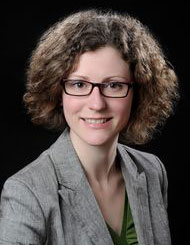Since the inception of SHARE in 2004, the Train-The Trainer (TTT) program has been integral in achieving one of the philosophical pillars of SHARE, its much-hailed ex-ante harmonization of procedures. Initially crafted by colleagues from SRC at the University of Michigan, the TTT is being continuously developed further to accommodate three constantly evolving aspects of SHARE: first, the electronic contact protocol “Case Control” (CaseCTRL) and CAPI software are constantly improved over waves and necessitate the introduction of new training content. An example would be new fieldwork disposition codes and its meaning and how these codes are meant to be used by interviewers. Likewise, new survey items or new questionnaire content are introduced every wave and need extensive training. A prominent example would be the collection of dried blood Spots (DBS) during wave 6 or the life history questionnaire of wave 7 or the added cognition measures to be fielded in wave 8. Also, the modalities of the training are being improved continuously to reflect best practices derived from current empirical evidence on adult learning. For example, a lot of training modules now contain more engaging modalities such as role play or small group exercises rather than straight-up presenting slides in every session.
The basic pedagogic approach of the TTT, however, has been unchanged for all waves of SHARE: the TTT is the template for national training sessions in the participating countries. Survey agencies have to translate the slides and implement the training the way it was done at the TTT, including the teaching modalities. This is essential for cross-national harmonization of procedures. In order to assess how well this implementation was accomplished, we changed the SHARE model contract in two significant ways: we made the delivery of training slides in national language a contractual deliverable. In wave 4, we took the effort and investigated all training slides in all national languages if they represented the content of the TTT.
The second change was the introduction of yet another deliverable, a standardized report on the national training sessions to be completed by the respective university teams after attending the national training sessions. Likewise, all other procedural changes in an upcoming wave are instructed at the TTT and expected to be relayed to interviewers at national training sessions.




